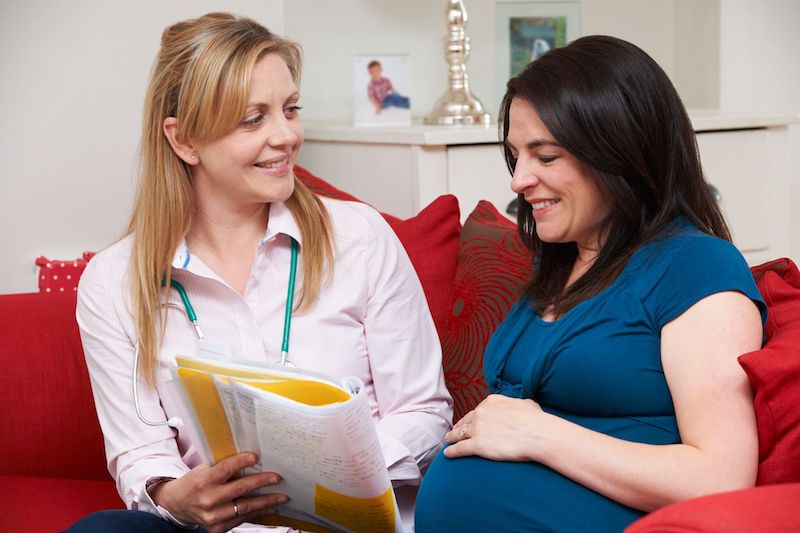Pregnancy is often described as a joyful and life-changing experience, yet it can also bring unique challenges that affect a woman’s health, well-being, and emotional balance. Live in carers Scotland services have become increasingly important in providing personalised assistance for expectant mothers, ensuring that they receive the right kind of support during this critical time. Unlike standard healthcare visits, live-in care offers consistent, round-the-clock help, which can make a significant difference for women navigating complicated or high-risk pregnancies.
Why Live-In Care Matters in Pregnancy
Pregnancy places both physical and emotional demands on women. From managing morning sickness and fatigue to dealing with gestational health conditions, the right level of care is essential. Live-in carers provide practical help with daily activities, from preparing balanced meals to ensuring rest and comfort. Their presence can ease the pressure on family members, while also offering professional reassurance to the mother-to-be.
In Scotland, where access to health services in rural and semi-rural communities can sometimes be more limited, live-in carers offer an accessible solution. They bridge the gap between routine medical check-ups and everyday needs, allowing women to remain in the comfort of their homes without compromising on care.
Emotional Support at Home
The emotional journey of pregnancy can be as demanding as the physical one. Anxiety, mood swings, and fear of complications are common experiences. Live-in carers are trained to provide more than just physical assistance — they also bring emotional stability. Their consistent presence helps reduce stress, while offering companionship and understanding at a time when women may feel vulnerable.
Having someone available day and night can reassure expectant mothers that they are never alone in managing their health. For families in Scotland, where extended relatives may not always be nearby, live-in care fills an important role in providing this layer of emotional comfort.
Practical Assistance and Daily Routines
Everyday tasks can become more challenging as pregnancy progresses. Carers can help with mobility, light household duties, and personal care, ensuring that women remain safe and supported in their environment. For example, maintaining good nutrition is vital for both mother and baby. Live-in carers can prepare balanced meals tailored to dietary needs, which is especially helpful for those with gestational diabetes or other pregnancy-related conditions.
In areas of Scotland where winter weather and long travel distances can pose difficulties, having dedicated support at home allows women to manage their routines without the added stress of commuting for minor needs. This convenience promotes both health and peace of mind.
Supporting High-Risk Pregnancies
Not all pregnancies are straightforward, and some require additional monitoring and tailored support. High blood pressure, gestational diabetes, or previous pregnancy complications can make close supervision essential. Live-in carers provide the reassurance of having someone who can assist in monitoring symptoms, encourage adherence to medical advice, and act swiftly in case of emergencies.
For women in more remote parts of Scotland, this immediate support can be invaluable. Instead of relying solely on hospital visits, live-in care offers a proactive safety net that keeps both mother and baby safer throughout the pregnancy.
Preparing for Labour and Beyond
The final stages of pregnancy often bring heightened emotions and physical discomfort. Live-in carers assist with relaxation techniques, mobility support, and preparing the home for the arrival of the baby. Their role does not necessarily end with birth. Many families in Scotland choose to extend care into the postnatal period, where support with recovery, feeding routines, and emotional adjustment is equally critical.
This continuity of care creates a smoother transition into parenthood. Mothers benefit from having someone who already understands their routines and needs, reducing the stress of adapting to sudden changes.
A Personalised Approach to Care in Scotland
One of the strongest advantages of live-in carers is the personalised nature of the support. Care plans are designed to suit each woman’s medical requirements, lifestyle, and emotional preferences. In Scotland, where communities range from bustling cities to isolated rural areas, the flexibility of live-in care ensures that women across different locations can access consistent help.
Carers adapt to cultural practices, family dynamics, and personal expectations, ensuring that care feels both professional and compassionate. This tailored approach promotes a healthier pregnancy experience and helps families feel more confident about the journey ahead.
Conclusion
Pregnancy is a time that demands not only medical supervision but also constant physical, emotional, and practical support. In Scotland, live-in carers are playing an increasingly vital role in meeting these needs. By offering round-the-clock presence, they provide reassurance, safety, and companionship, particularly for women facing high-risk pregnancies or living in areas with limited healthcare access.
As more families recognise the benefits of this personalised support, live-in care is becoming a cornerstone of pregnancy wellness across the country. For expectant mothers, knowing that help is always at hand can transform pregnancy from a time of anxiety into a period of comfort, care, and confidence.





